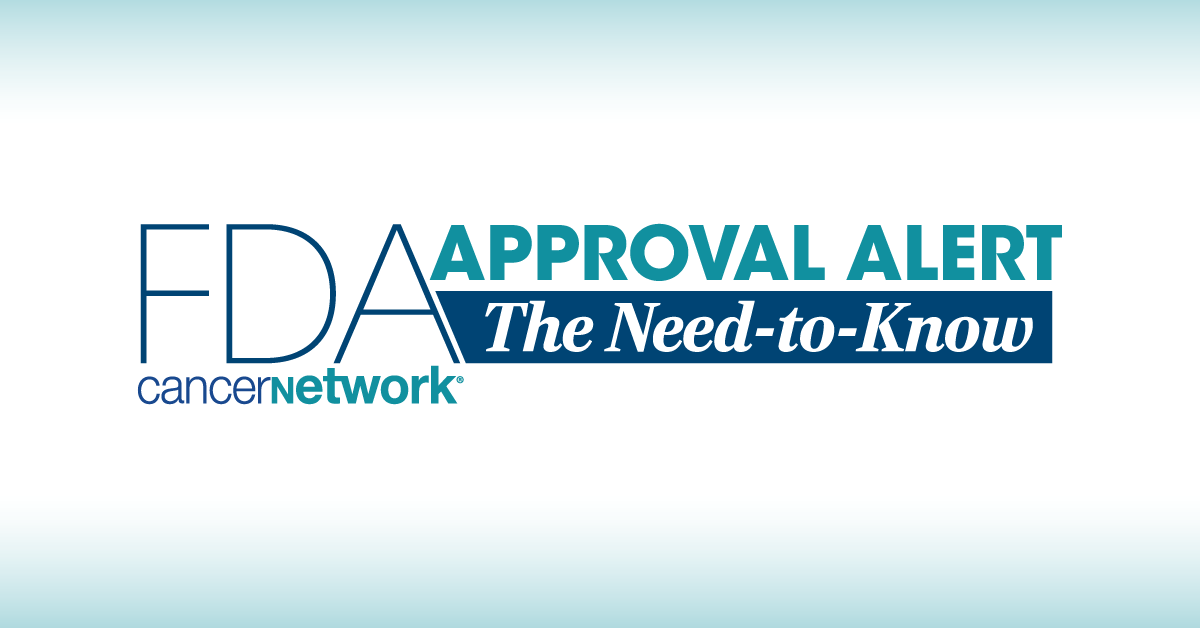Perioperative Durvalumab Approved by FDA in Resectable NSCLC
Results from the phase 3 AEGEAN trial led to the approval of neoadjuvant and adjuvant durvalumab for patients with resectable NSCLC.
Results from the phase 3 AEGEAN trial led to the approval of neoadjuvant and adjuvant durvalumab for patients with resectable NSCLC.

The FDA has approved neoadjuvant durvalumab (Imfinzi) plus platinum-containing chemotherapy followed by single-agent durvalumab as adjuvant treatment for patients with resectable non–small cell lung cancer (NSCLC) who do not have a known EGFR mutation or ALK rearrangement, according to a press release from the agency.1
The approval was based on results from the phase 3 AEGEAN trial (NCT03800134), which was previously presented at the 2023 World Conference on Lung Cancer.2,3 The trial assessed 802 patients with previously untreated and resectable squamous or nonsquamous NSCLC treated with perioperative durvalumab vs placebo with platinum-based chemotherapy. Treatment was given every 3 weeks for up to 4 cycles followed by either durvalumab monotherapy or placebo every 4 weeks for up to 12 cycles.
The recommended dose for patients who weigh 30 kg or more included 1500 mg of durvalumab every 3 weeks as neoadjuvant treatment and every 4 weeks for adjuvant treatment. If patients have a weight of less than 30 kg, they are to receive durvalumab at 20 mg/kg. Durvlumab should be given before chemotherapy if it is given on the same day.
Topline data from the trial showed a median event-free survival (EFS) that was not reached (95% CI, 31.9-not estimable [NE]) in the durvalumab arm and 25.9 months (95% CI, 18.9-NE) in the placebo arm (HR, 0.68; 95% CI, 0.53-0.88; P = .0039).
The pathological complete response was 17% (95% CI, 13%-21%) in the durvalumab arm and 4.3% (95% CI, 2.5%-7.0%) in the placebo arm. The prespecific interim analysis did not formally test overall survival for statistical significance. However, the descriptive analysis did not show a clear detriment.
The most common adverse effects (AEs) included anemia, nausea, constipation, fatigue, musculoskeletal pain, and rash. For patients who received neoadjuvant durvalumab, 1.7% could not receive surgery because of an AE vs 1% in the placebo arm.
In July 2024, the FDA Oncology Advisory Drug Committee (ODAC) met and voted 11-to-0 to mandate that new clinical trial designs needed to include sufficient within-trial assessments for the contribution of the treatment phase in studies evaluating preoperative therapy for patients with NSCLC.4
During the ODAC meeting, one of the questions that members discussed was whether the AEGEAN trial results supported the use of duravlumab in the aforementioned patient population.
“Moving forward, my hope is that we eliminate some of this ambiguity [by having] additional conversations with the patients,” Pamela L. Kunz, MD, an associate professor of Internal Medicine at Yale School of Medicine, said during the ODAC meeting.4
References
- FDA approves neoadjuvant/adjuvant durvalumab for resectable non-small cell lung cancer. News release. FDA. August 15, 2024. Accessed August 15, 2024. https://shorturl.at/e7i8B
- He J, Gao S, Reck M, et al. Neoadjuvant durvalumab + chemotherapy followed by adjuvant durvalumab in resectable EGFR-mutated NSCLC (AEGEAN). Presented at: 2023 IASLC World Conference on Lung Cancer; September 9-12, 2023; Singapore, Republic of Singapore. Abstract OA12.06.
- Heymach JV, Harpole D, Mitsudomi T, et al. perioperative durvalumab for resectable non–small-cell lung cancer. N Engl J Med. 2023;389(18):1672-1684. doi:10.1056/NEJMoa2304875
- July 25, 2024 Meeting of the Oncologic Drugs Advisory Committee (ODAC). Streamed live July 25, 2024. Accessed July 25, 2024. https://tinyurl.com/yhxkmxmz